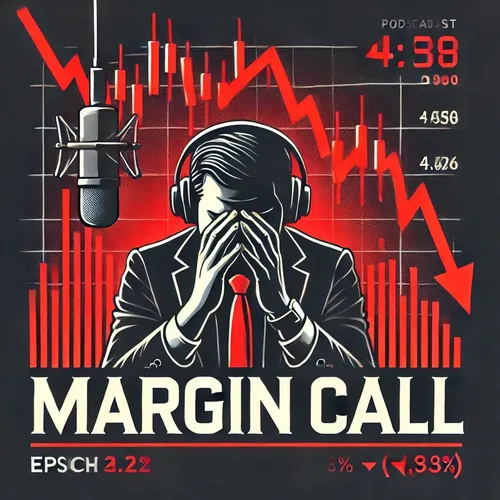Margin Calls and Short Positions: Navigating the Perils of Leveraged Trading
- Author
- Quiet. Please
- Published
- Sat 09 Aug 2025
- Episode Link
- https://www.spreaker.com/episode/margin-calls-and-short-positions-navigating-the-perils-of-leveraged-trading--67311357
Margin calls and short positions represent two critical elements in the world of trading, especially when markets move swiftly and unpredictably. Margin trading allows a listener to borrow money from a broker to buy assets, leveraging their positions with the hope of amplifying returns. This mechanism is attractive because it requires only a small percentage of the trade value up front, but it also magnifies risks, including the potential to lose more than the initial investment. When asset prices move against a leveraged position, the broker may issue a margin call, demanding the investor deposit additional funds to maintain the minimum margin requirement because the value of the portfolio has dropped too low.
Short positions, on the other hand, reflect a fundamentally different bet. Here, a trader borrows shares of a stock or another security and sells them immediately, hoping the price will fall. If it does, the trader buys back the shares at the lower price to return to the lender, profiting from the difference. The underlying principle is to make money from declining prices, but this approach is loaded with risk. If the price rises instead of falling, the trader faces losses that can theoretically be unlimited—since a stock’s price can climb far beyond projections.
What listeners must understand is that short positions can become especially troubled rapidly during volatile periods. If an unexpected surge in the asset's price occurs, brokers will seek immediate repayment of borrowed securities through a margin call. This forces short sellers either to deposit more collateral or liquidate their positions, often at a substantial loss. Such events can spark what is referred to as a “short squeeze,” where rising prices drive more short sellers to cover their positions by buying back shares, further propelling the price upward and intensifying the squeeze. These scenarios become front-page news when heavily shorted stocks experience sudden upward momentum, turning small losses into devastating ones for participants on the wrong side of the trade.
Financial institutions employ real-time monitoring and automated algorithms to flag these risks. When a short position edges into danger territory, risk management systems may trigger preemptive actions such as raising margin requirements or forcibly closing positions. For retail traders and professionals alike, these risk controls are now mostly digitized, ensuring trades are monitored as markets shift, but even with sophisticated systems, markets can still move faster than systems can react, leaving little time for human intervention.
The trouble for those holding short positions intensifies in periods of heightened market volatility or when unexpected news shakes investor sentiment. Changes in asset correlation, which measures how assets move in relation to each other, can disrupt even well-diversified portfolios. Many traders diversify to mitigate risk, but if assets suddenly begin moving in sync during a market event, protection may become meaningless and short positions are particularly exposed. Fund managers, institutional traders, and individuals all must weigh these risks carefully—with margin calls acting as both a protective mechanism for brokers and a catalyst for market turbulence.
A margin call is more than just an alert; it demands immediate action. If additional capital isn’t deposited quickly, brokers will liquidate positions automatically to cover losses. For those shorting assets, this outcome crystallizes realized losses and often magnifies the pain of missed timing, market misunderstanding, or inadequate risk controls.
Ultimately, successful margin and short position management hinges on understanding market mechanics, maintaining vigilant monitoring, and being prepared for swift market reversals. Margin calls may seem abrupt, but they are vital in ensuring the stability of brokers and the...
